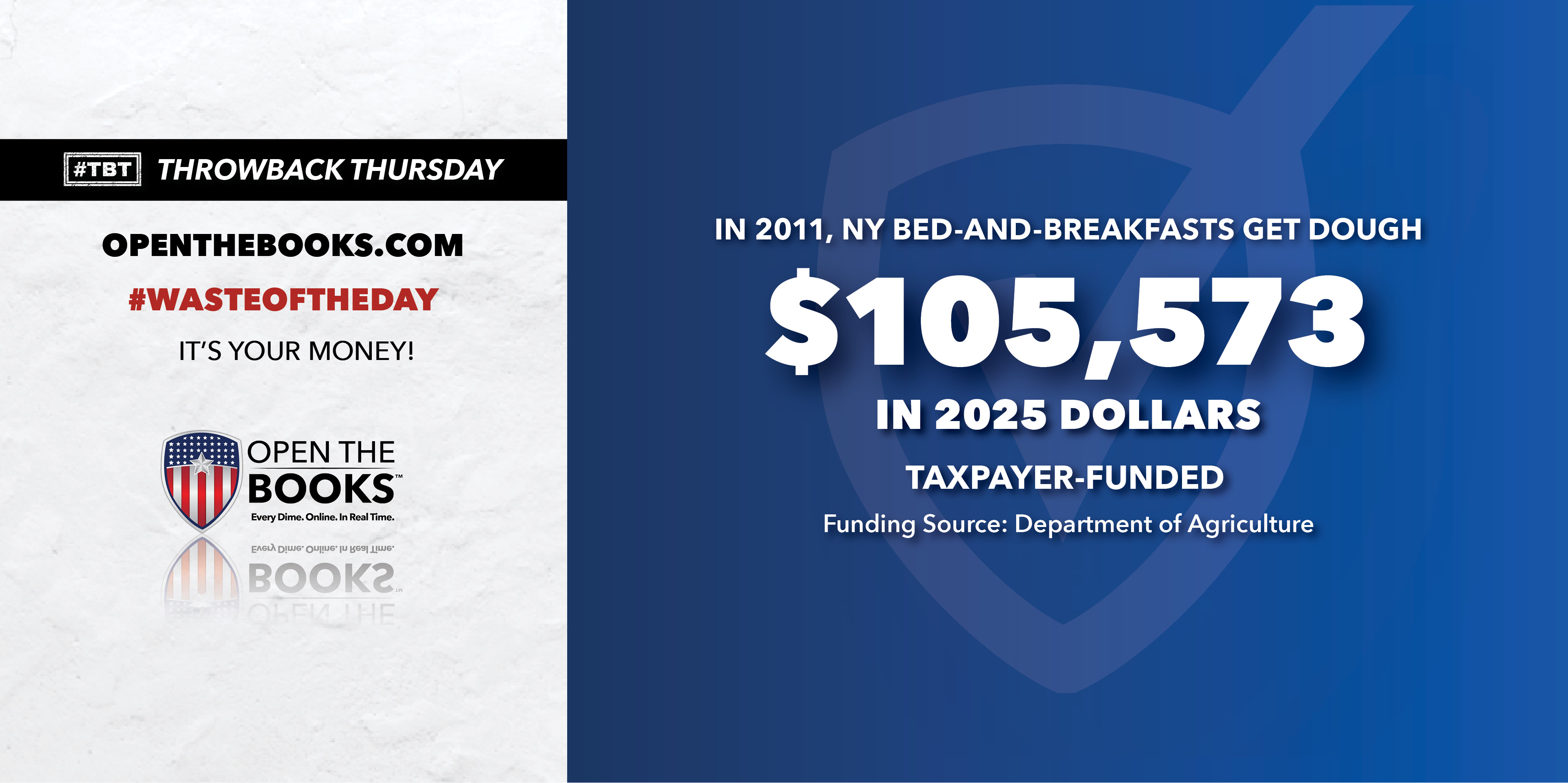Waste of the Day: Throwback Thursday - Agriculture Grants Help B&Bs Buy Jam
Topline: Of all the issues the U.S. was facing in 2011, the quality of food served at bed-and-breakfasts was likely not top of mind for most voters. But for some reason, the Department of Agriculture was focused on making sure New York inns were buying locally sourced groceries with a $73,824 federal grant.
The money would be worth $105,573 today.
That’s according to the “Wastebook” reporting published by the late U.S. Senator Dr. Tom Coburn. For years, these reports shined a white-hot spotlight on federal frauds and taxpayer abuses.

Coburn, the legendary U.S. Senator from Oklahoma, earned the nickname "Dr. No" by stopping thousands of pork-barrel projects using the Senate rules. Projects that he couldn't stop, Coburn included in his oversight reports.
Coburn's Wastebook 2011 included 100 examples of outrageous spending worth nearly $7 billion, including the money spent subsidizing New Yorkers’ breakfasts.
Key facts: The New York Department of Agriculture bragged at the time that the federal grant would “encourage B&B operators to feature locally produced food and agricultural products in meals served to their guests” and “carry shelf-stable local products such as jams, maple syrup and sauces.”
New York used the money to run a two-year program coordinated with the Empire State B&B Association and the Cornell Cooperative Extension of Madison County.
It remains unclear why the grant was necessary. As Coburn noted, most bed-and-breakfasts in New York were already buying locally produced foods, and many even offered their guests pamphlets listing local stores and farmers’ markets where they could buy the food themselves.
Search all federal, state and local salaries and vendor spending with the world’s largest government spending database at OpenTheBooks.com.
Background: The Department of Agriculture announced grants to 18 other states and Puerto Rico at the same time as the New York grant, some of which were also a questionable use of money.
Maine received $64,145 to “compile a comprehensive consumer-oriented database of the Maine fiber sector.” Michigan State University got $36,750 to use “eye movement tracking technology” to study which vegetables customers notice first in a grocery store. California’s Department of Agriculture used $35,000 on a nationwide system for reporting wild rice production.
Summary: Anyone can appreciate a good home-cooked meal, but $73,824 is too steep a price tag for most.
The #WasteOfTheDay is brought to you by the forensic auditors at OpenTheBooks.com






